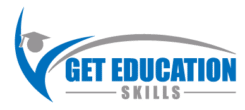
Education is a dynamic and multifaceted journey that plays a crucial role in shaping individuals’ personal and professional lives. This comprehensive guide delves into essential aspects of education, including foundational skills, examination strategies, career planning, and more. Whether you are a student, educator, or career seeker, understanding these elements can significantly enhance your educational and career experiences.
1. The Essence of Education
Education forms the backbone of personal and societal development. It involves the process of learning and teaching, aimed at enhancing knowledge, skills, and values. Education spans various levels, from early childhood through to higher education and lifelong learning. A well-rounded education fosters critical thinking, adaptability, and a broader understanding of the world.
2. Crucial Education Skills
To excel academically and professionally, certain skills are indispensable:
Critical Thinking: The ability to analyze information and make informed decisions.
Effective Communication: Articulating thoughts and ideas clearly and persuasively.
Problem-Solving: Identifying issues and developing practical solutions.
Time Management: Prioritizing and managing time effectively to meet goals.
Digital Literacy: Proficiency in using technology to support learning and productivity.
Mastering these skills can enhance academic performance and prepare individuals for various professional challenges.
3. Mastering Examinations
Examinations are designed to evaluate students’ understanding and knowledge in different subjects. They can include:
Standardized Tests: Assessments that measure performance against established benchmarks.
Quizzes and Midterms: Frequent assessments that monitor ongoing learning.
Final Exams: Comprehensive evaluations at the end of a course or academic term.
Effective exam preparation involves creating a study schedule, practicing past questions, and employing test-taking strategies. Consistent study habits and managing exam-related stress are key to performing well.
4. Career Development
Career planning is a critical aspect of professional growth. It involves:
Self-Assessment: Understanding personal interests, strengths, and career goals.
Exploration: Researching various career paths and understanding job requirements.
Skill Acquisition: Gaining relevant qualifications and experience.
Networking: Building professional connections and exploring opportunities.
Career development is an evolving process that requires ongoing adjustment and learning.
5. Navigating Careers Online
The digital era has transformed how we explore and advance in careers. Key online resources include:
Job Portals: Websites where job openings are posted and applications can be submitted.
Professional Networking Sites: Platforms like LinkedIn for career networking and growth.
Online Learning Platforms: Resources for acquiring new skills and certifications.
Utilizing these online tools can enhance job search efforts and career advancement.
6. Preparing for College
College represents a major milestone in higher education, offering advanced knowledge and personal growth opportunities. Key aspects to consider are:
College Research: Evaluating institutions based on academic programs, campus life, and location.
Application Process: Preparing applications, including personal statements and recommendation letters.
Financial Planning: Understanding tuition fees and exploring scholarships and financial aid options.
A thoughtful approach to college preparation can significantly impact future academic and career success.
7. Supporting Educators
Teachers play a pivotal role in the educational system. Effective teaching involves:
Lesson Planning: Designing engaging and educational lesson plans.
Classroom Management: Creating a positive and conducive learning environment.
Student Assessment: Evaluating student progress and providing constructive feedback.
Supporting teachers with professional development and resources is essential for fostering effective learning experiences.
8. Embracing General Education
General education encompasses a broad range of subjects and skills, providing a well-rounded educational foundation. This includes:
Basic Literacy and Numeracy: Fundamental skills in reading, writing, and mathematics.
Social Sciences: Knowledge of history, geography, and social studies.
Science and Technology: Understanding scientific concepts and technological advancements.
A strong general education foundation prepares individuals for diverse life and career opportunities.
Conclusion
Education is a multifaceted geteducationskills journey that goes beyond traditional learning. By focusing on essential skills, effective exam strategies, career planning, and leveraging digital resources, individuals can enhance their educational experiences and future success. For more detailed information and resources, visit Get Education Skills.